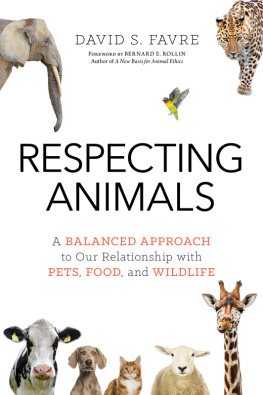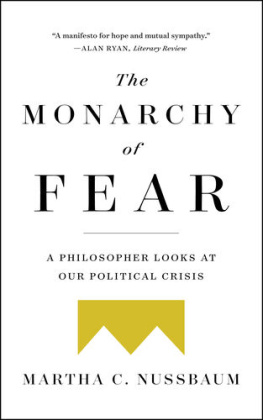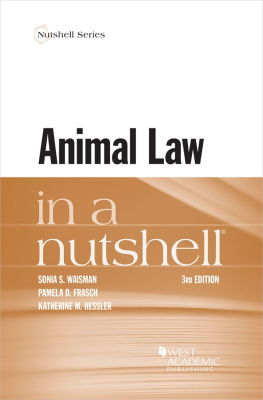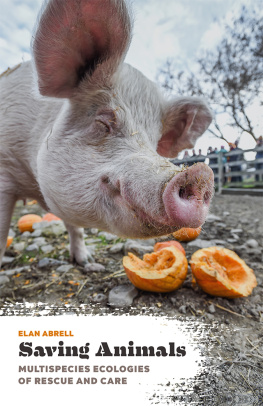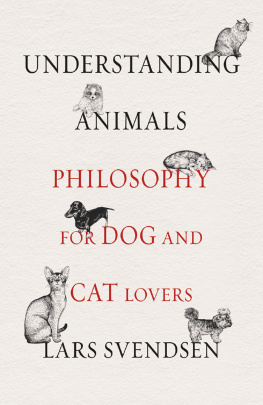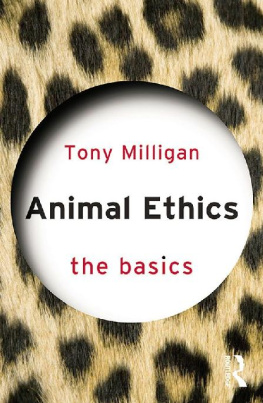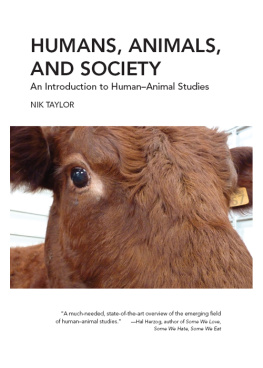The drafting of this book took many years and the support of a number of individuals. Michigan State University College of Law (previously known as the Detroit College of Law), has always supported my efforts on behalf of animals, even at the beginning point back in the 1980s. Without that support, my intellectual path forward would have been almost impossible.
A number of people have reviewed various drafts of this book and provided useful suggestions, questions, and comments: Brittany Mouzourakis, Karen Chopra, Jeremy Francis, Charles Roboski, Tom Wright, Kimberli A. Bindschatel, and Yoshida Akimuneand, of course, my editor at Prometheus Books, Steven L. Mitchell. I am most appreciative of the efforts of my son, Scott Favre, and his wife, Jennifer Haeger, in the reviewing my materials.
We humans share Earth with millions of other species. We share ecosystems with these other species. We share a genetic history, shaped by evolution, with other beings. Is there any duty humans have toward individuals of all these other species? Or perhaps to the various species as sets of individuals? Are there any restraints on human actions or affirmative obligations toward these other beings? Perhaps these beings are conscious, perhaps not. Some feel pain, some do not. Some have a capacity to suffer, and others do not. Are they just physical things to use or not, as might be useful or entertaining to humans? If our diet requires protein, may we take it wherever it might be found? If we are entertained by death, may we inflict it? Do animals count for anything in our lives?
One restraint on human action is found under the umbrella of ethics (other umbrellas include law, religion, and family practices). Ethics are sets of ideas or social rules that shape human conduct. Ethics have as a starting point the presumption that in a particular set of circumstances a human has a choice of which conduct to pursue. And, by rational consideration, some conduct is considered preferable or more acceptable than other paths of conduct. For example, consider the following: a man, Homer, leaves his car, then he opens the front door of his home. It has been a hard, stressful day; the traffic has been terrible and he is hungry. Upon entering the door, he finds that his dog, Rover, is lying asleep on the floor. The options before him about what to do next are numerous:
Ignore the dog and step around it
Step on the dog
Kick the dog
Yell at the dog
Call the dog
Pet the dog
Hug the dog
Etc., etc.
How might we judge these options? What needs to be taken into account? What if it was a ball rather than a dog? What if it was his six-month-old son? Initially, there is the consideration of what impact the different actions would have upon Homer himself. Perhaps some actions would make him feel better. Some might have initial positive consequences, but later cause regret. Other actions would have no impact on Homer. The presence of an impact on Homer of a particular action does not make it an ethical question. Ethics has to do with relationships with others, the impact or consequences of one person's action or inaction on other persons. If a human child were on the floor, then the list of actions would presumably have some positive and some negative consequences to the child, thus making the possible actions by Homer an ethical question.
Whether an action is ethically positive or negative is determined by weighing the foreseeable consequences of the proposed action. To give a child a vaccine shot in the arm will have the immediate negative consequence of pain, but the subsequent benefits of health enhancement offset the initial negative. Therefore, the action is a positive ethical act. But most of us would judge that the risk of both short- and long-term harm and pain that would be the consequence of Homer stepping or kicking or even yelling at the child is not justified by the possible positive emotional release that might be felt by Homer. His kicking, stepping on, or yelling at the child would be judged by most to be unethical, a negative ethical action. One would hope that Homer's own judgment would come to the same conclusion and those actions would be rejected by him. If within a particular society there is strong majority opinion that agrees that certain specific actions are unacceptable, then a law can be passed prohibiting, for example, the kicking or stepping on a child, anyone's child. (Yelling at his child is much more difficult to judge both in ethics and in law.)
I would hope that everyone would agree that children of any age are beings included in the ethical universe of humans. In other words, they are ethical subjects. We adult humans are ethical actors and have the obligation to consider the consequences of our actions upon ethical subjects. This obligation exists even if the ethical subject is not capable of accepting a reciprocal duty. For instance, the adult should not hit the child, but the restriction on the child to not hit the adult, to become an ethical actor, does not arise until the child is old enough to control his or her actions and have awareness of the consequences of those actions on ethical subjects. Initially, the human child, while being an ethical subject, might hit his sister without fully understanding the infliction of pain. At this point the child is not an ethical actor. But, as time passes and his brain develops, he will become an ethical actor, and restraint would be expected. He may hit his sister, specifically to inflict pain, and then the ethical teaching (or religious or family values) begins. He will be expected to conform to the ethical values (i.e., the preexisting judgments about acceptable and unacceptable conduct) within his community.
If Homer is faced with a ball on the floor, he may indeed realize a release of tension and stress if he kicks the ball very hard, a positive consequence of the action. While such a kick may have certain physical consequences within the house, are there ethical concerns about the consequences of the act to the ball itself? I think not. As an inanimate object, the ball cannot feel pain or suffer; the ball does not care about its own existence at any level. It is not alive. We may need to respect the ball because it is the property of another, but the ball is not another in and of itself. The ball is not an ethical subject.
We are left with the threshold question: What should Homer do or not do upon entering his house? Is Rover more like the ball or the baby? The dog is alive, as is the baby; the dog has preferences about life and the conduct of humans around him. The dog has a name; the ball does not. Our common experiences support a position that the dog would prefer a hug over a kick. So, would it be ethical for Homer to kick Rover? Common sense suggests the positive ethical choice for Homer is to not kick or step upon the dog. In saying this we necessarily admit the dog into our world of ethics. The dog is an ethical subject, a being whose interests must be taken into account when deciding to do something that impacts the being. Within the United States and many, if not most, countries of the world, it is presently accepted that it is wrong, unethical, to inflict unnecessary pain or suffering upon animals. Whether it is illegal is a separate question. Homer's bad day would not justify kicking, hitting, or stepping upon the dog since the negative consequences to the dog are not outweighed by the possible positive consequences to Homer. (A fair analysis might find that kicking the dog, regardless of immediate emotional release, is a negative for Homer's long-term well-being because it reinforces a socially negative state of aggression against others as an acceptable course of action.)

